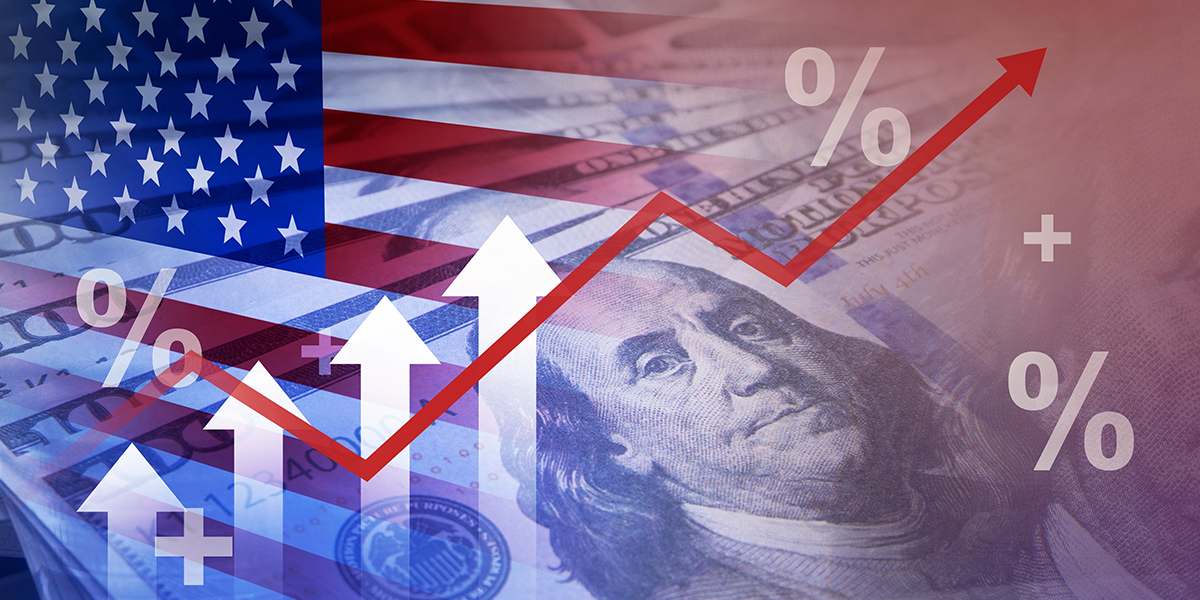The great standoff: U.S. tariffs set the stage for a global trade war

Highlights
- Major U.S. tariff hike raises average import duty to 16.5% by 2025
- China, EU, and others respond with sharp countermeasures
- U.S. households face $3,800 yearly hit; car prices surge
- IMF and Fed warn of inflation, job losses, and recession risk
- Netscribes supports financial firms with forecasting and trade insights
President Donald Trump’s sweeping tariff hike—the largest U.S. tax increase in nearly 60 years—has triggered financial market turmoil and stoked fears of a global trade war. The plan includes a 10% tariff on all imports, with even higher rates targeting countries with large trade surpluses, such as China. The move aims to cut the trade deficit, revive U.S. manufacturing, and shield domestic industries from perceived unfair competition.
If implemented, average import tariffs would surge from 2.5% to 16.5% in 2025, marking a dramatic escalation in protectionist policy that has sparked global backlash and heightened fears of a U.S. recession and broader economic instability. The possibility of a global trade war has caused policymakers, economists and investors grappling with uncertainty.
Global retaliation and diplomatic strain
The U.S. move has triggered swift and sharp reactions worldwide. China retaliated with a 34% tariff, calling Washington’s actions as “economic bullying.” The European Union, while open to talks, is preparing counter-tariffs on politically symbolic goods such as jeans, whiskey, and motorcycles, and is exploring restrictions on U.S. tech and financial services.
Canada is removing American products from shelves, and U.S.-bound travel is falling. In Asia, nations like Malaysia, South Korea, and Indonesia are coordinating regional responses and adjusting trade policies. Even close allies like Germany and France have criticized the unilateral U.S. move. The intensification of this global trade war has frayed already strained diplomatic ties.
Economic repercussions at home and abroad
The domestic impact of the tariffs is already severe. Yale’s Budget Lab estimates a 2.3% rise in prices, amounting to a $3,800 annual loss per U.S. household—hitting lower-income families hardest.
The U.S.-made cars are estimated to cost $3,285 more, while foreign models could see price hikes of up to $15,000. Automakers like Stellantis announced plant closures and layoffs, while inflation and slower GDP growth loom.
The combined effect of tariffs and retaliatory measures is expected to shrink U.S. GDP by 0.8% and reduce after-tax household income by nearly 2%—a $1,900 hit per family.
Globally, the IMF has warned of “significant risk” to an already fragile economy. The uncertainty caused by the global trade war has led to stock sell-offs, and slowed investment flows, with businesses hesitant from moving forward due to economic instability.
IMF Managing Director Kristalina Georgieva urged de-escalation, warning that “it is important to avoid steps that could further harm the world economy.”
Warnings from Experts and Industry Leaders
Prominent voices have sounded the alarm. U.S. Federal Reserve Chair Jerome Powell warned of higher inflation, slower growth, and rising unemployment. Billionaire investor and Trump supporter Bill Ackman went further, describing the situation as an “economic nuclear war” that threatens global confidence and investment.
Singapore’s Prime Minister Lawrence Wong echoed the sentiment, labeling the current wave of protectionism “unstable and damaging,” and warning it could tip both the U.S. and global economies into recession. In what many describe as a full-blown global trade war, nations are reassessing their economic strategies and fortifying trade alliances to withstand ongoing shock
Looking ahead
While the tariffs may generate nearly $2.9 trillion in revenue over the next decade, the broader economic cost—lost GDP, strained alliances, higher consumer prices, and investment paralysis—may far outweigh the gains.
As countries weigh their next steps, the world watches whether the U.S. will recalibrate or double down. A reversal or softening of the policy could ease tensions, stabilize markets, and open the door for renewed trade negotiations. On the other hand, a more aggressive approach may prompt retaliatory tariffs, disrupt global supply chains, and further strain diplomatic ties.
Either path carries profound implications—not just for global trade and international diplomacy, but also for inflation, job markets, and the cost of living for everyday American consumers.
In these uncertain times with the looming global trade war Netscribes can empower financial institutions to navigate the complexities by providing in-depth market analysis, scenario-based forecasting, and strategic insights through our growth consulting solutions.






